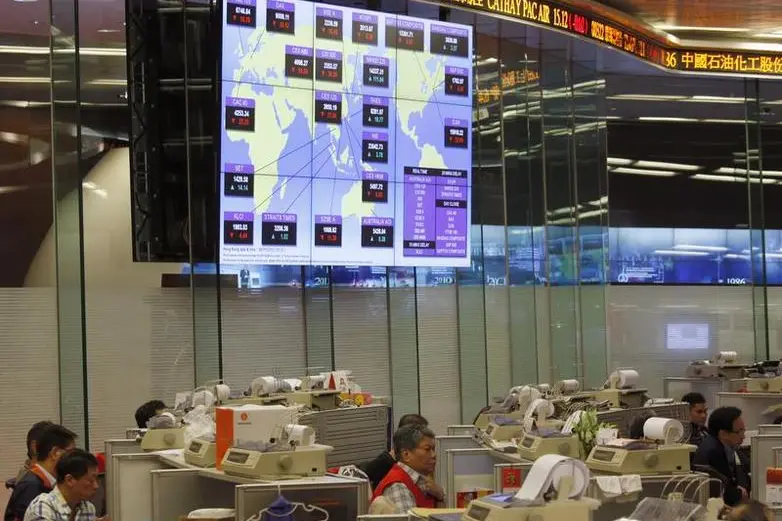PHOTO
(The author is a Reuters Breakingviews columnist. The opinions expressed are his own.)
By Pete Sweeney
HONG KONG (Reuters Breakingviews) - Asia bulls are enjoying a day in the sun. Record numbers packed CLSA's forum in Hong Kong this week, where the Chinese-backed brokerage made the case for already heady Asian assets. Soaring regional stocks and currencies, combined with increased confidence that China has its economy under control, make it an easy sell. The biggest worry is that America gets its act together and the dollar rallies again.
Twenty years have passed since the Asian financial crisis, and the region is marking the anniversary with an impromptu market jubilee. The MSCI Emerging Asia Index has blown past global benchmarks, having gained more than 30 percent this year to hit its highest level in a decade. Asian currencies have rallied, most notably China's yuan and the Thai baht; the collapse of the latter helped set off the crisis in 1997. Bonds are doing so well there is talk of a bubble.
Credit is certainly due to China's deft regulators. They fended off capital flight and cracked down on shadow banking and speculation, even as they opened new channels for foreign investment into stocks and bonds. There has been no hard landing. Even special guest Steve Bannon, the former chief strategist to U.S. President Donald Trump and notorious China hawk, had something nice to say. He called China's economic management "brilliant", according to a Channel NewsAsia journalist who attended the supposedly closed-door meeting, adding: "I tip my hat to them."
The irony is Asia's rally owes as much to America's disarray. CLSA equity strategist Christopher Wood, speaking with reporters, argued the dollar's weakness – which has supported regional liquidity - reflects faltering confidence in Trump's ability to deliver tax reform. As for the Federal Reserve, many analysts expect monetary conditions in Asia to stay easy barring an extraordinary move from the U.S. central bank.
Graphic: Year-to-date percentage change in Asian currencies versus the U.S. dollar: http://reut.rs/2jssJAG
But if the dollar is tracking political failure in the world's largest economy, that's nothing to celebrate, especially in a region that exported nearly $1 trillion in goods to the United States last year. And there is a more subtle irony in capitalists toasting the victory of Beijing’s authoritarian approach to markets. The strength of the yuan, for example, is less the result of improved fundamentals than a side-effect of heavy-handed intervention, some of it quite ugly. There are few signs of a looming crash, to be sure, but perhaps best keep this party low-key.
CONTEXT NEWS
- More than 3,200 delegates assembled in Hong Kong for brokerage CLSA's annual conference from Sept. 11 through Sept. 15, a record high, according to CLSA.
- The MSCI Emerging Markets Asia index is up more than 30 percent in 2017 and is trading near its highest level in 10 years.
- Most Asian currencies apart from the Philippine peso have rallied strongly this year on the back of a weak dollar.
- According to data from Thomson Reuters Lipper, flows into emerging market funds this year have already exceeded full-year figures for the last four years.
- Mutual funds and exchange-traded funds tracked by the Thomson Reuters Lipper Emerging Markets Funds peer group took in more than $26 billion in new money in the first seven months of 2017.
(Editing by Quentin Webb and Katrina Hamlin)
© Reuters News 2017





















